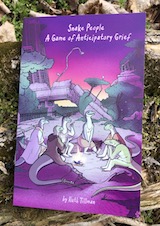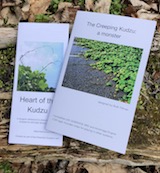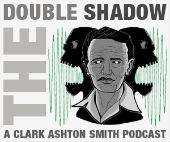Even before I released the Lovecraft eBook, people have asked me where they should start with Lovecraft or what his best stories were. As with any fiction, this is my entirely subjective take. I added my thoughts but tried not to give things away.
As always, I recommend reading these along with the H.P. Lovecraft Literary Podcast if you want company (and for the ones not on this list, the podcast really helps get through them and even see fun things in them). There are a number of good recordings available at the Lovecraft eZine and some on Librivox. I've also linked to three below which I especially recommend.
Best of Shorter Fiction
These are, perhaps, the best to start with. They're not too long (some more than others), if you don't like one you can drop it and move on to another. They're in a variety of styles and have varying tones. Together, they encapsulate everything about Lovecraft's universe except his dream stories. I don't especially like the dream stories, but you can find a list on Wikipedia and attempt them.
Pickman's Model
A great introduction to the world of Lovecraft. Short but manages to encapsulate cosmic horror in an ordinary city.
The Colour Out of Space
An excellent instance of cosmic horror. A meteor arrives and what it contains wreaks havoc on a small area. One of my favorites, very much works for sci-fi horror inspiration.
The Shadow Over Innsmouth
One of the best.
The Whisperer in Darkness
I find this one of the eeriest of Lovecraft's stories.
The Haunter of the Dark
More amazing imagery. I recommend the H.P. Podcraft audio version.
The Dunwich Horror
Best instance of heroic librarian.
The Rats in the Walls
Fantastic imagery and a classic Lovecraftian protagonist. Definitely Poe-inspired. Racist cringe factor with the cat's name. Spoils what might be on otherwise excellent story.
The Call of Cthulhu
Not as readable as some because it's a tale within a tale within a tale. There are newspaper clippings and journal entries and interviews. Nonetheless, this is one of the classics. And, of course, it's where one meets Cthulhu and the only story in which Cthulhu is really a character—though he's mentioned elsewhere.
The Thing on the Doorstep
Must be read after “The Shadow Over Innsmouth” or it loses background material.
Herbert West — Reanimator
This story was commissioned for a magazine and has a slightly different feel from his others. A bit more like regular pulp. I enjoy it.
Best of Long Stories
Lovecraft didn't write much that was novel or novella length, these are the best of those stories.
The Case of Charles Dexter Ward
Fairly classic Lovecraftian story but with much more material. Proves he actually could write a novel. I enjoyed the Cthulhu podcast reading which can be bought here or downloaded episode-by-episode from the same site.
The Shadow out of Time
Somewhere between a short story and novella. I don't recommend reading this one until you've read quite a few of his others, but I really enjoyed it.
At the Mountains of Madness
Actually, I didn't especially enjoy this one until I read the graphic novel. But so many other people seem to love it that I'll recommend it as something you might like as well. I recommend reading after you've read most of the shorter ones, not up front. And consider picking up the graphic novel in order to experience it in a different way (it's a slow, visual story).
Vignettes
Lovecraft was good at writing short works which are as much about capturing the feel of a place or idea as telling a proper story. None of these really have plot or conclusions, but they're all excellent.
The Picture in the House
One of Lovecraft's most human-centric stories. No cosmic horror, this has the plain down-home variety and very creepy. I recommend the H.P. Podcraft's recording of it.
The Music of Erich Zann
Trivia, the “viol” Zann plays is actually a cello, both are short for violoncello. Lovecraft made this clear in correspondence.
The Outsider
This vignette has a distinct Poe feel to it but is beautifully executed for what it is. I think it's possible that I may have read it in high school without knowing it was Lovecraft, but can't be sure. I read a lot of Poe & some other horror short stories.
What I left out
What I left out, I left out based on my own tastes. “The Temple,” “Cool Air,” “The Dreams in the Witch House,” and “The Statement of Randolph Carter” are all short stories that you might enjoy if you discover you like Lovecraft. I enjoy them reasonably well, but I don't think they're good enough to put in the list above.
“The Dream-Quest of Unknown Kadath” is one which I wouldn't recommend to someone starting Lovecraft. If you try the rest & like them, then consider reading it or listening to it on the Cthulhu Podcast (which is the only way I made it through, though I enjoyed listening).
I really really don't recommend “The Street,” which is so racist that it makes me yell at Lovecraft. And “Old Bugs” is about the evils of alcohol, not about giant old bugs (I was disappointed). “The Horror at Red Hook” has a lot of racist elements to it, although it is a fairly successful horror story. (updated to add: your best reasons for reading that would be as preliminary to reading The Ballad of Black Tom).
Of course, your take on this may be entirely different. If you have any other recommendations for people just starting Lovecraft, please leave them in the comments!


